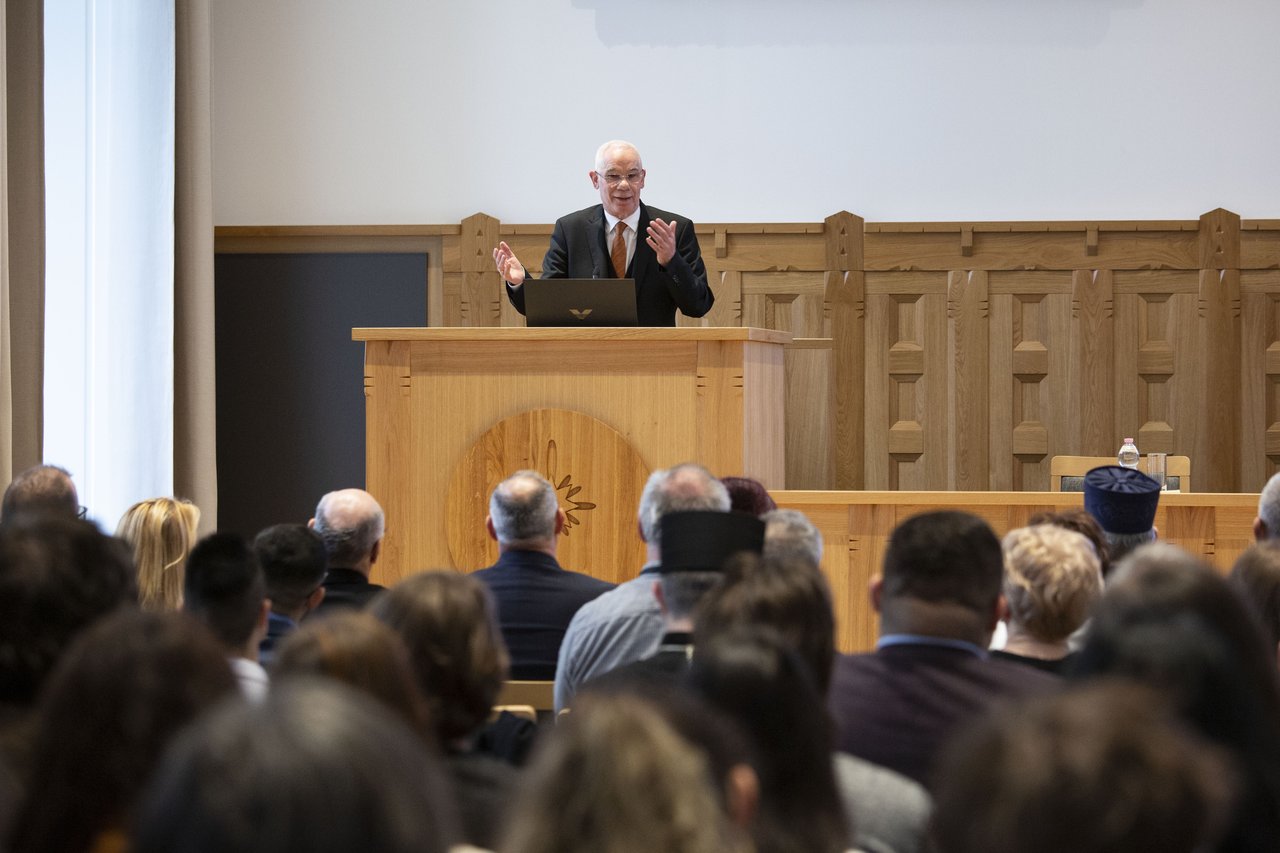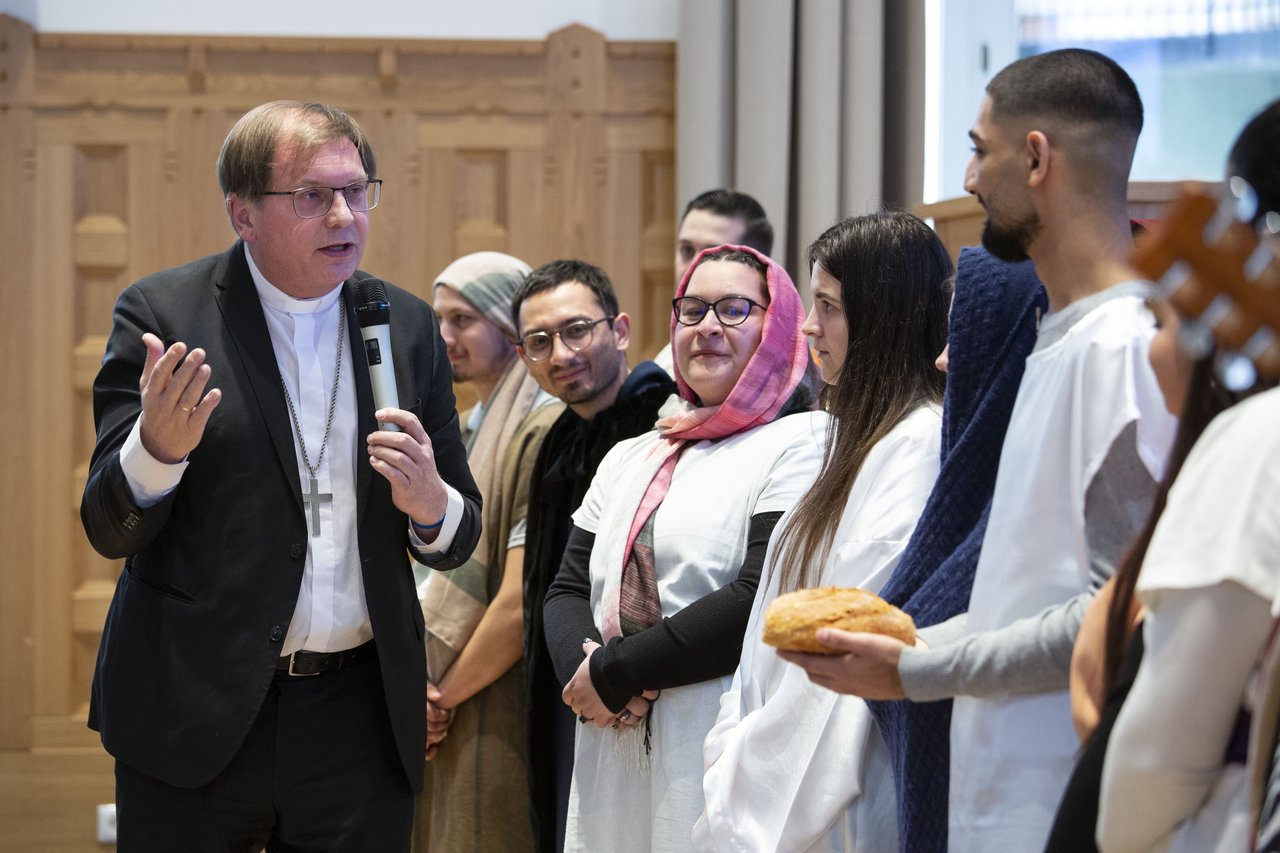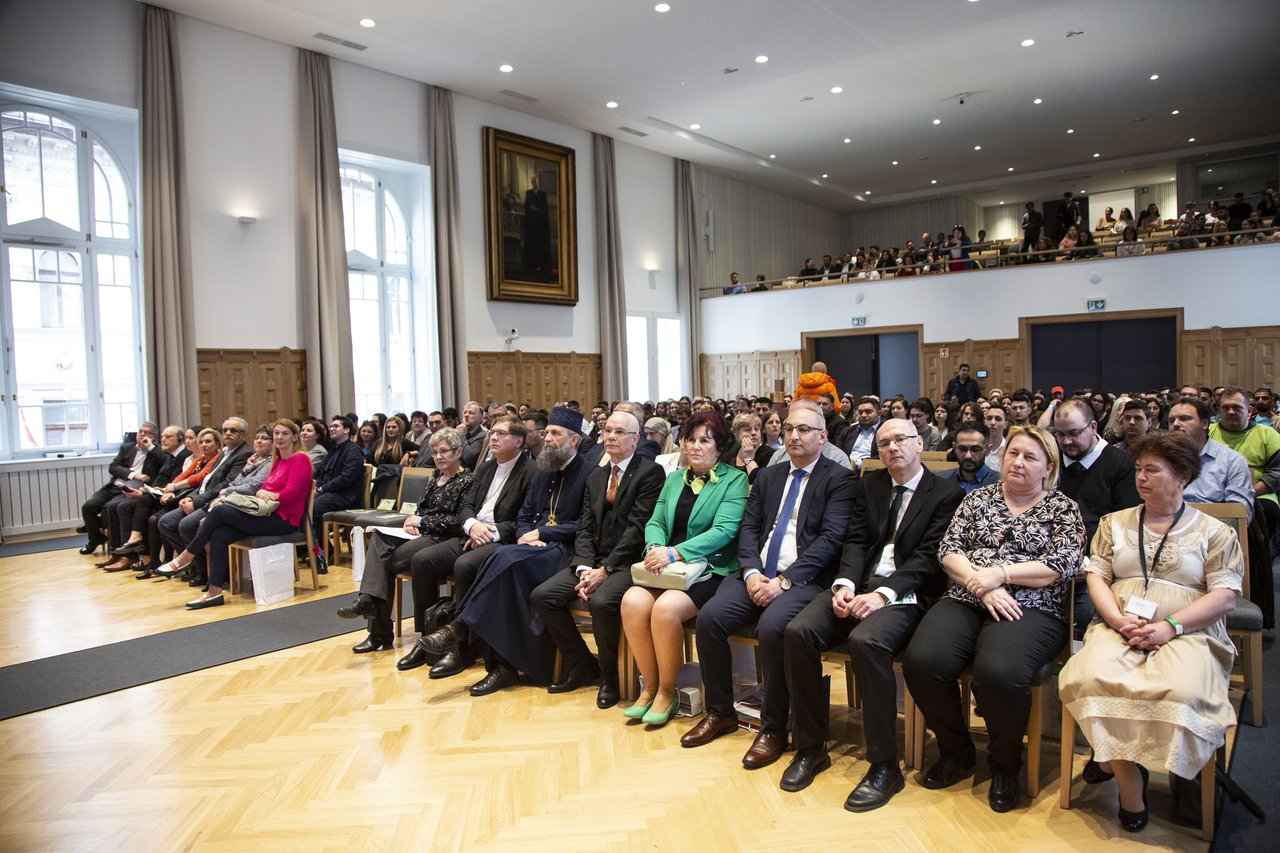“The common goal of our Christianity is for Roma and non-Roma Hungarians to live in peace and love with each other,” said Bishop Zoltán Balog on the ‘We Belong Together — Roma Integration Day’. During the event, the participants reviewed the results of the social inclusion program and shared their aspirations in round table discussions. In addition to the Roma colleges for advanced studies, guest speakers from social, religious, and civil organizations (including the Diaconia of the Reformed Church in Hungary) presented their activities. The event took place in the Ráday House in Budapest.
At the occasion of the International Roma Day, the purpose of this event was to create an opportunity for advocates of equity and social integration among Hungarian Roma to meet each other. Among these advocates were leaders from colleges, civil organizations, churches, and community initiatives.

Greeting by Bishop Zoltán Balog
Referring to the title of the event, Bishop Zoltán Balog, Ministerial President of the Synod of the Reformed Church in Hungary, recognized how gratifying it is to see more and more people emphasize living side by side in peace. He described the unity and cooperation between Roma and non-Roma Hungarians as a joyful thing, explaining that whenever groups of people can work together despite their differences, we should consider it a gift from the Lord. This kind of joint service can provide people with a Christian recipe for reconciliation. He noted that the first official ecumenical organization was established on the issue of Roma among the historical churches in Hungary. The Network of Christian Roma Colleges for Advanced Studies was established in 2011, and since then more and more people have been attending these institutes. According to Zoltán Balog, this increased level of interest is sending several messages. One is that we must serve together in order to come together as one. The other is that as authentic Christians, we must view each other as children of God. Zoltán Balog said that one of the most important goals and tasks of reconciliation is for Roma and non-Roma Hungarians to live in peace and love with each other. He emphasized that it is important to pass on this message and to represent the joy of togetherness as mission delegates.
The Hungarian Evangelical Roma College brought the story of the Passion of Christ to the stage. After the performance, Lutheran bishop Tamás Fabiny gave a greeting. Referring to the song "There, on the Via Dolorosa" sung during the play, he recognized that the Gypsies have had to bear their own cross. Their story is about the suffering they have borne individually and as a group: humiliation, prejudice, abuse, criminalization. Bishop Tamás Fabiny acknowledged that the Network of Christian Roma Colleges for Advanced Studies helps to stop prejudice, brings people together to serve the Lord, and enacts the title of the conference: “We Belong Together”. Tamás Fabiny described the Lord's Supper with the term ‘integer panis,’ i.e., ‘whole bread,’ from which everyone can partake. Then he quoted Johann Christoph Blumhardt: "Just as flour is ground from many pieces of grain, but only one bread is baked from it, and as wine is pressed into a drink from many grapes, so all of us who are members of the body of Christ by faith must become one body through brotherly love; we should become one drink, one bread."

Tamás Fabiny with the students of the Hungarian Evangelical Roma College
Following Bishop Tamás Fabiny’s greeting, Attila Sztojka, government commissioner for Roma relations, welcomed the guests. He discussed how belonging together is based on common values; and that we should look for what unites us rather than focusing on our differences. The next speaker was Gábor Biczó, head of the Roma Colleges Network in Hungary. He presented the results of the initiative so far: a total of eleven Roma colleges for advanced studies are operating in the country, and almost three hundred students are part of this form of education. He stressed that the performance and competence of young Roma people should be made more visible. It is important for as many Roma as possible to learn about the options for support. He also emphasized the importance of the close cooperation of the institutions dealing with social reintegration, the Safe Start Homes, kindergartens, schools, and Roma colleges for advanced studies.
At the conference, Dávid Stekler, a special prize winner of the National Scientific Students’ Associations Conference (OTDK), presented the results of his research on the learning motivation of children living in foster care and state care. Fanni Maszlag, a former student at one of the colleges for advanced studies, presented her study on the identity change of Roma women.

The Roma integration day was enriched by round table discussions and cultural programs. More than two hundred people took part in the event. The festive occasion was organized by the Roma Colleges Network in Hungary and the Network of Christian Roma Colleges for Advanced Studies, and with the support of the Ministry of Interior and the Danubian Reformed Church District. The event took place under the patronage of Katalin Novák, President of Hungary.